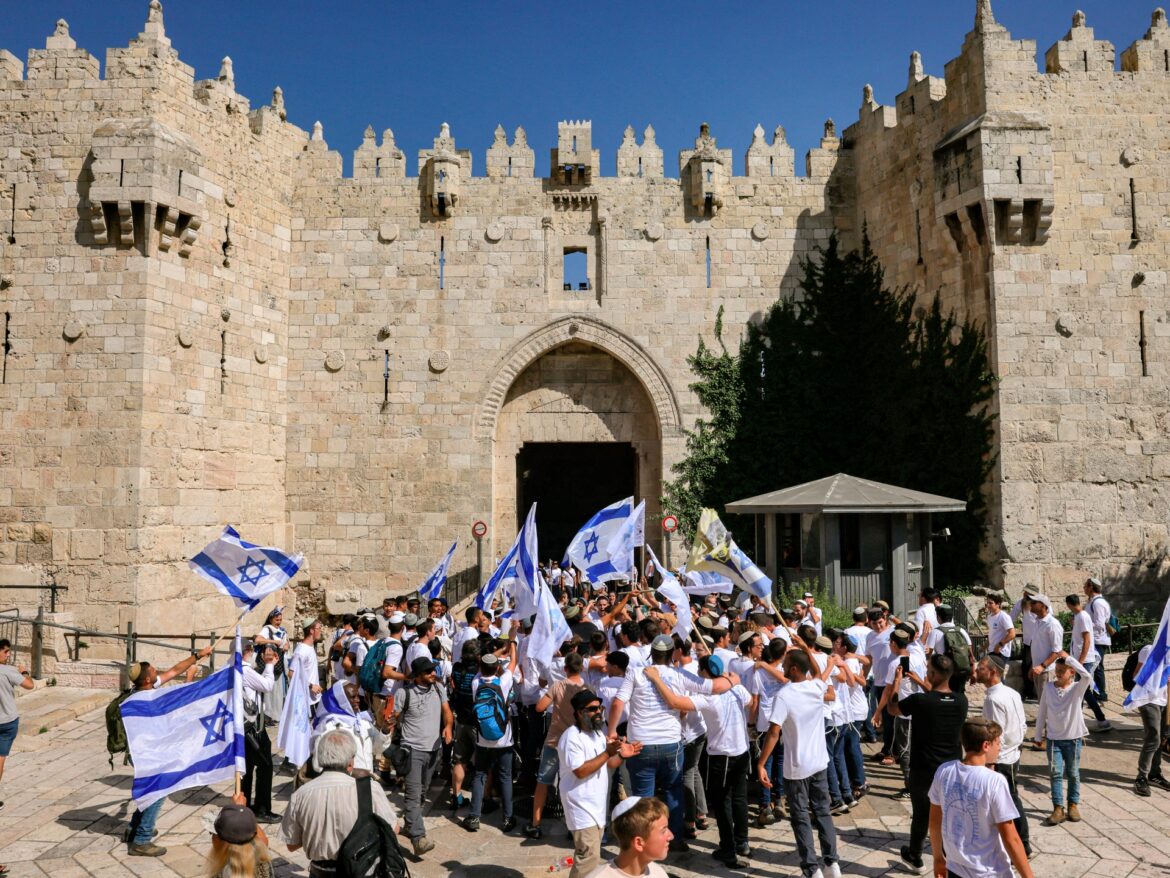Thousands of Israelis, most of them ultranationalists, took part in an annual march in a Palestinian neighborhood in Jerusalem’s Old City, with some demonstrators chanting “Death to the Arabs.”
Jerusalem has been mostly calm throughout Israel’s war on Gaza, but the march could spark widespread tensions, as it did three years ago, when it helped spark an 11-day war in Gaza.
Protesters gathered outside the Damascus Gate, usually a central gathering place for Palestinians in occupied East Jerusalem, and chanted anti-Arab and anti-Islamic slogans, danced and waved Israeli flags as the procession was starting.
Just before the march began, the crowd clashed with police and threw plastic bottles at a journalist wearing a vest emblazoned with the word PRESS. Some chanted “Mohammed is dead!” » referring to the Islamic prophet.
The march took place amid high tensions over the war between Israel and Hamas in Gaza.
The annual march commemorates “Jerusalem Day,” which marks Israel’s capture of East Jerusalem, including the Old City and its holy sites sacred to Jews, Christians and Muslims, during the Middle War. -East of 1967. Israel considers all of Jerusalem its capital, but its annexation of East Jerusalem is not internationally recognized. Palestinians, who want East Jerusalem to be the capital of a future state, view the march as a provocation.
In previous years, police forcibly removed Palestinians from the parade route, and large crowds of mostly ultranationalist youth chanted “Death to the Arabs,” “Let your village burn,” and other offensive slogans. . Police said they were deploying 3,000 security officers to ensure calm.
At the insistence of Israel’s far-right National Security Minister Itamar Ben-Gvir, who oversees the police, the march will follow its traditional route, entering the Muslim Quarter of the Old City through the Damascus Gate and ending at the Western Wall, the holiest place. where Jews can pray.
As buses carrying young Jewish men for the march crowded around the centuries-old walls of the Old City, Palestinian merchants closed their doors in the Muslim Quarter in anticipation.
Police stressed that the march would not enter the sprawling compound of the Al-Aqsa Mosque, Islam’s third holiest site.



